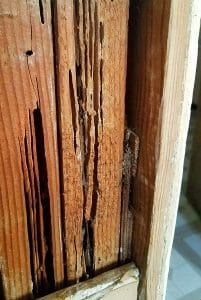Illinois law requires a seller to disclose certain property defects to prospective purchasers of which the seller has actual knowledge. The Act and the mandated disclosure form describe 23 condition categories that require disclosing. No specific investigation or inquiry is required to compete the disclosure statement and the Act protects a seller from failing to disclose: if the seller had no knowledge of the error or the failure to disclose was based on a reasonable belief that the defect or other matter not disclosed had been corrected.
Certain types of transfers of real property are exempt from disclosure. For example, generally, a seller does not have to make disclosures if: it is party of to a lawsuit such as divorce, bankruptcy, or mortgage foreclosure; the owner is an estate; or the seller is transferring the property to a close family member.
If a seller fails to deliver the disclosure, the buyer may terminate the contract at any time before closing. If she knowingly delivers a disclosure that is incorrect or incomplete, she may be liable to the buyer for actual damages, court costs, and attorney’s fees. A seller that fails to follow the disclosure mandates may be held liable for false statements in a disclosure even if the buyer knew about the defects. Further, if a seller becomes aware of a covered defect in the property after disclosure and before closing, a seller must send a supplemental disclosure to the Buyer.
The residential real property disclosure report is not a contract. It is, however, a creature of statute and failure to comply with the statute can result in severe penalties for a seller. Make sure to take this disclosure seriously and discuss any questions with your real estate attorney. Generally, Your Lawyer will advise you that when in doubt, disclose.














